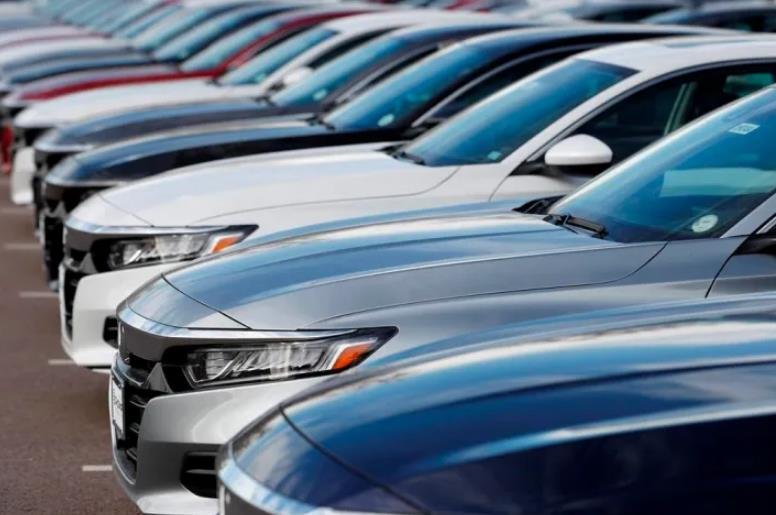The auto industry is undergoing a major transformation, driven by technological innovations, environmental concerns, and changing consumer preferences. The future of mobility is expected to be more electric, connected, shared, and autonomous. However, some regulatory barriers and market distortions are limiting the ability of consumers to choose the best option for their needs. In this article, we will explore why consumer choice is important for the auto market and what can be done to promote it.
Consumer choice is the ability of consumers to select the products and services that best suit their preferences, needs, and budgets. Consumer choice is essential for a well-functioning market, as it creates competition, innovation, and efficiency. When consumers have more options, they can compare prices, quality, features, and performance, and choose the one that offers the best value. This incentivizes producers to improve their products and services, lower their costs, and differentiate themselves from their rivals. As a result, the market becomes more dynamic, responsive, and diverse, benefiting both consumers and producers.

Consumer choice is also important for social and environmental reasons. When consumers have more options, they can express their values and preferences through their purchases, and support the causes they care about. For example, some consumers may prefer to buy electric vehicles (EVs) to reduce their carbon footprint, while others may opt for hybrid or conventional vehicles for other reasons. Consumer choice allows consumers to align their consumption with their personal goals and beliefs, and contribute to social and environmental causes.
The challenges of consumer choice in the auto market
Despite the benefits of consumer choice, the auto market faces some challenges that restrict it. One of the main challenges is the lack of direct distribution by car manufacturers. In many states and countries, car manufacturers are prohibited from selling their vehicles directly to consumers, and have to rely on franchised dealers. This creates a monopoly for dealers, who can charge higher prices, offer lower quality service, and limit the availability and variety of vehicles. Consumers have less bargaining power, information, and options, and end up paying more for less.
Another challenge is the lack of standardization and interoperability among different types of vehicles, especially EVs. EVs require charging infrastructure, which is not widely available and compatible across different brands and models. Consumers may face difficulties in finding and accessing charging stations, and may have to pay different fees and use different payment methods. This creates uncertainty, inconvenience, and extra costs for consumers, and discourages them from adopting EVs.
A third challenge is the lack of consumer awareness and education about the benefits and features of different types of vehicles, especially new and emerging ones. Consumers may not be familiar with the advantages and disadvantages of EVs, hybrid vehicles, autonomous vehicles, and other alternatives. They may also have misconceptions, biases, and fears about the safety, reliability, and performance of these vehicles. This limits their willingness and ability to make informed and rational decisions, and prevents them from exploring new options.
The solutions for consumer choice in the auto market
To overcome these challenges and promote consumer choice in the auto market, several actions can be taken by different stakeholders. Some of the possible solutions are:
- Allowing direct distribution by car manufacturers. This would enable consumers to buy vehicles directly from the producers, without intermediaries. This would increase competition, transparency, and efficiency, and lower prices and costs. Consumers would have more information, options, and control over their purchases, and enjoy better service and quality. Car manufacturers would also have more flexibility, innovation, and customer loyalty, and be able to tailor their products and services to the needs and preferences of consumers.
- Creating standardization and interoperability among different types of vehicles, especially EVs. This would enable consumers to use any charging station, regardless of the brand and model of their vehicle. This would increase the availability, accessibility, and convenience of charging infrastructure, and lower the fees and costs. Consumers would have more confidence, comfort, and satisfaction in using EVs, and be more likely to adopt them. Car manufacturers would also benefit from the economies of scale, network effects, and customer retention, and be able to expand their market share and reach.
- Providing consumer awareness and education about the benefits and features of different types of vehicles, especially new and emerging ones. This would enable consumers to learn about the pros and cons of EVs, hybrid vehicles, autonomous vehicles, and other alternatives, and compare them with their current vehicles. This would increase the knowledge, interest, and demand for these vehicles, and encourage consumers to try new options. Car manufacturers would also have more opportunities to showcase their products and services, and persuade consumers to switch to their vehicles.
Consumer choice is vital for the auto market, as it drives competition, innovation, and efficiency, and benefits both consumers and producers. However, consumer choice faces some challenges that limit its potential, such as the lack of direct distribution, standardization, and awareness. By addressing these challenges, consumer choice can be enhanced and the auto market can be transformed for the better.
